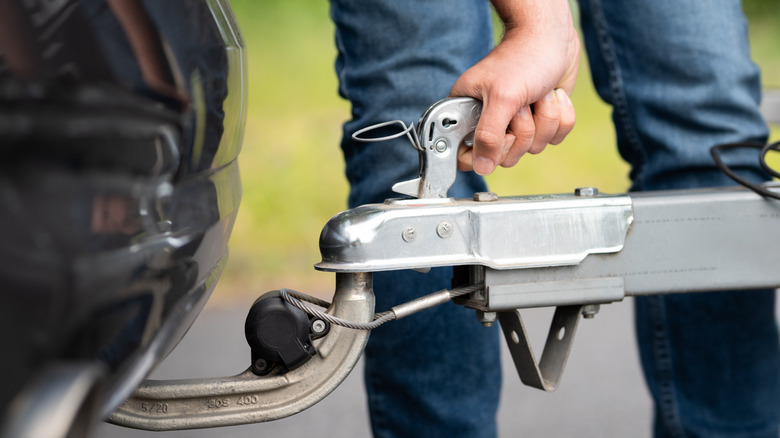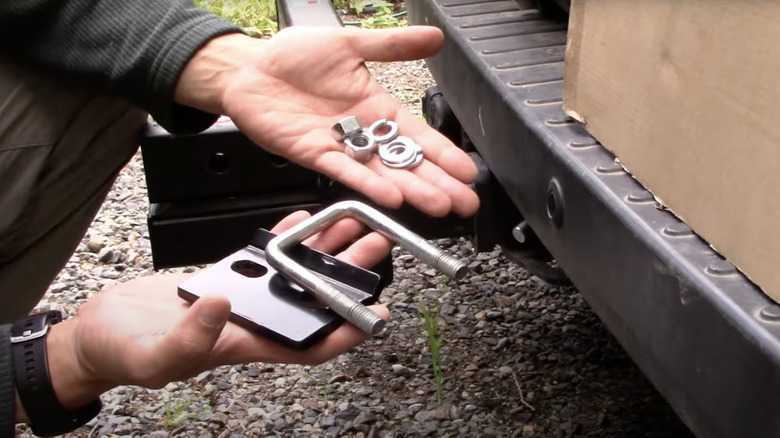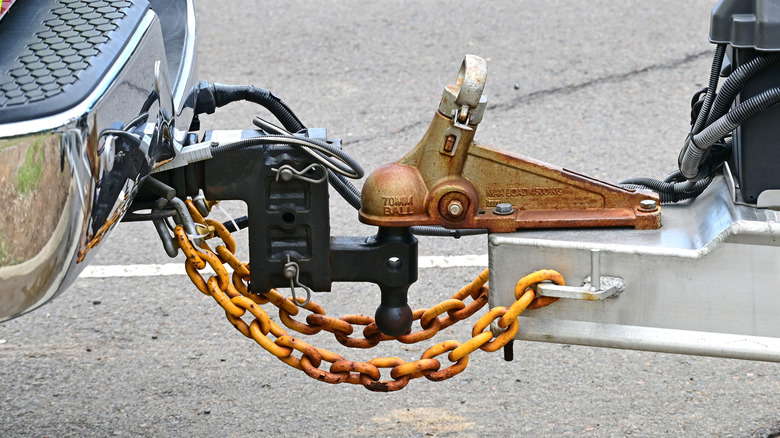Should A Trailer Tow Hitch Wiggle?
We may receive a commission on purchases made from links.
Safely towing a trailer or camper requires certain techniques and safety measures because your stopping distance is longer and your overall stability is limited. Comfort matters too, and few things are more distracting than a wiggly hitch. So, should a trailer tow hitch wiggle? As a general rule of thumb, there should be no play between the hitch ball and the coupler. However, if you do encounter smaller movements, even with properly matched sizes and the correct installation, you can nullify them with aftermarket anti-rattle devices.
According to an NHTSA recall of certain trailer couplers, excessive play while towing can undermine stability and cause the trailer to become uncoupled. A Washington State investigation even linked a trailer detachment, which sadly ended tragically, to a mismatched ball and coupler. With that in mind, always match your coupler size with the correct hitch ball, and if there is any wiggle left, you can eliminate it with proper anti-rattling devices.
How to stop hitch wiggle
Common trailer-stabilizing devices include a hitch clamp, a spring-loaded pin, a standard pin, and a sleeve-style clamp. Before buying any of these, make sure to measure the size of your hitch receiver, as not all sizes are likely to fit. A hitch clamp, like the Deeagle Hitch Tightener from Amazon, is a steel clamp that bolts onto the receiver to lock it in place and stop the mount from moving. A spring-loaded pin relies on a nut on the inside of the shank that has a spring that distributes the force gradually and thus limits the wiggle.
A sleeve-style clamp slides over the shank into the receiver and takes up the extra space that causes the wiggle. Lastly, a standard pin, like the Metoware Trailer Hitch Lock, replaces your existing hitch with a locking variant to help with rattling and security. It's worth mentioning that these are only viable if the wiggle is minimal and if all of the measurements are correct. Knowing what size a standard ball hitch is, and matching it properly, is the most important step to ensure your towing experience is as safe as can be.
Trailer hitch laws you can't ignore
Federal regulations require all coupling devices to allow proper articulation "without excessive slack" at the connection. This means that, even though it does not explicitly state the trailer should not wiggle, it leaves room for authorities to interpret whether such looseness could pose a safety issue. State laws add additional layers on top of that by requiring additions such as safety chains or breakaway brakes for heavier trailers.
For example, in California, state laws require drivers to use safety chains or equivalent approved devices. This is done to make sure that even if the trailer wiggles and potentially fails, it remains attached to the vehicle. U.S. states with the worst towing protection laws, such as Alabama, Iowa, and North Carolina, have fewer protections in place. Even though many states share similar regulations, there are differences, and you need to make sure you're aware of them if you want your setup to be compliant across state lines.


